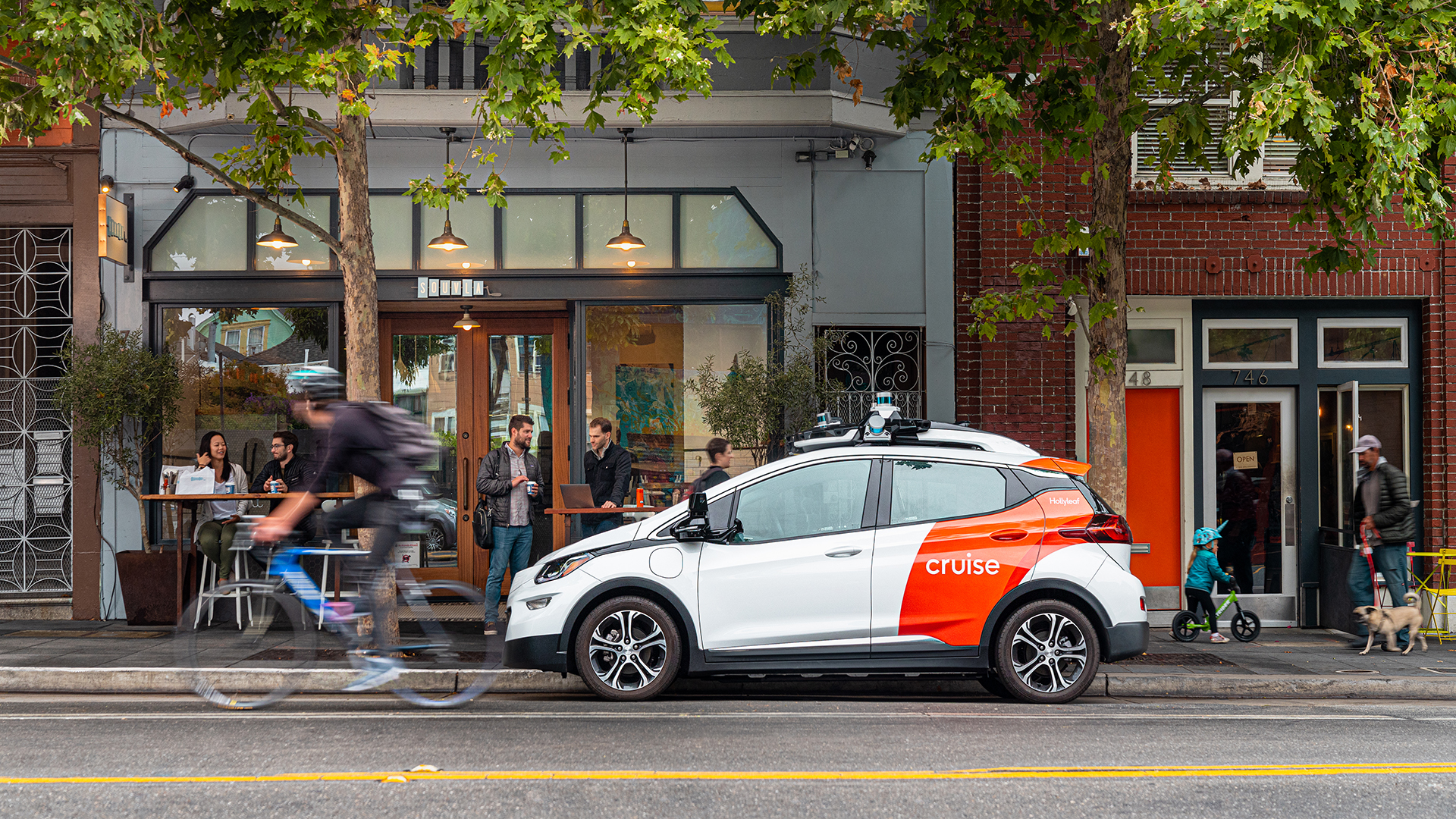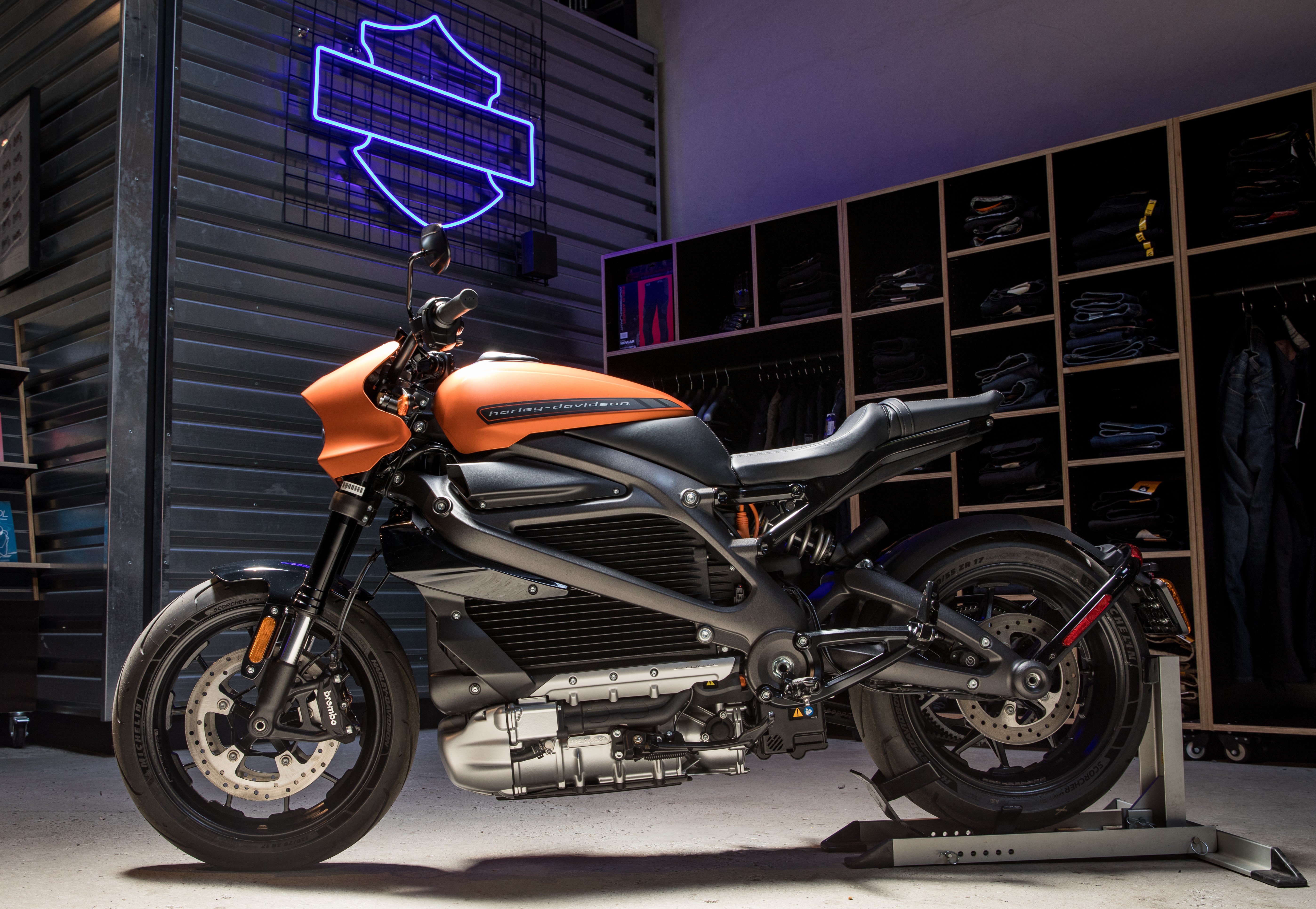The Station is a weekly newsletter committed to all things transport. Sign up here– simply click The Station– to receive it every Saturday in your inbox.
Hi and welcome back to The Station. I’m your host Kirsten Korosec, senior transport reporter at TechCrunch. If you’re interested in all the future and present ways people and plans move from point A to point B, you remain in the ideal location.
It felt like Tesla dominated the news cycle as soon as again today. (Checks list of published short articles– yep, it sure did.) There was other movement news though, including layoffs at self-driving business Cruise and brand-new guidelines that Uber is rolling out Monday that will change the ride-hailing experience for the foreseeable future.
Reach out and email me at [email protected] to share ideas, criticisms, viewpoints or tips. You can likewise send out a direct message to me at Twitter– @kirstenkorosec.
Shall we get down to it? Vamos.
Micromobbin’

The micromobbin’ area got more crowded this week as Bolt announced it would launch an electrical scooter service in more than 45 cities this summer. Bolt, a huge rival to Uber in Europe and Africa, has actually raised more than $200 million from financiers like Daimler and Didi Chuxing.
Meanwhile, Bird, Lime, Voi and Tier are apparently in talks with regional authorities in the U.K. to release electric scooter trials as early as next month. The U.K. initially planned to begin enabling companies to operate next year, but that timeline has actually been risen amidst the coronavirus pandemic.
Over in the land of e-bikes, the U.S. National Forest Service has proposed revisions to rules relating to e-bike use on federal lands. The proposal is open for public remark up until June 8, 2020.
The proposed regulations, which you should take a look at here, would exclude e-bikes from the meaning of automobile. Park superintendents would have the authority to open paths and roadways designated for bikes to e-bikes.
However, there are conditions.
PeopleForBikes, a not-for-profit company and bicycle advocacy group, has loads more info on the proposed rulemaking.
Speaking of e-bikes, these modes of transportation are poised to be big winners this year. One bit from The Verge article provides you some concept of how things are shaping up for e-bike business: Seattle-based Rad Power Bikes stated its sales in April increased a massive 297%year over year; its sales to service customers in the delivery sector also rose 191%from March to April this year.
It’s not e-bike boom times for everyone. The Brink reported that GM killed off its first electrical bike called ARIV.
— Megan Rose Dickey and Kirsten Korosec
Offer of the week

Deals– they are slim, but they’re still happenin’.
It appears like just the other day that Waymo revealed it had actually raised $2.
However what’s this? The extension comes from brand-new financiers, consisting of those managed by T. Rowe Cost, Perry Creek Capital, Fidelity Management and Research Company and others.
Other deals:
Uber approached Grubhub in February with an all-stock takeover offer and the business have actually been in talks given that then, according to the WSJ, which broke the story.
TechCrunch’s Alex Wilhelm unloads the handle regards to its expense and describes why Uber has to pay in stock, how large a combined Uber Eats/Grubhub entity would be compared to its competitors and why adjusted EBITDA helps us understand how this acquisition might provide Uber’s bottom line a shot in the arm.
Intel announced its latest tranche of offers: $132 million invested in 11 start-ups. The offers speak with some of the business’s most tactical concerns currently and covers expert system, autonomous computing and chip style.
DispatchTrack, which developed a platform for last-mile deliveries to help companies imitate Amazon-like experiences by planning and tracking deliveries more easily, has closed a $144 million financial investment from a single investor. This is the company’s first-ever funding after scaling up as a bootstrapped startup to support more than 60 million deliveries each year.
VanMoof, the Dutch e-bike startup that released in 2009, raised $135 million from London VC Balderton Capital and SINBON Electronics, the Taiwan-based electronics maker that is its bike assembly partner.
Haulin’

If the COVID-19 pandemic has actually taught us anything, it’s how complex and delicate our supply chain is. Startups pursuing this sector, whether it remains in subcategories like freight, autonomous robotics or logistics, might discover a more inviting investor community.
I’ll be assembling news and tips in this classification when there is news to share. Today, there was.
The United States Postal Service pressed back the deadline for official bids to make its next-generation mail truck due to COVID-19, Trucks.com reported.
Curri, an on-demand construction materials delivery service co-founded by Matt Lafferty and Brian Gonzalez, has actually started to use its services in all 50 states. The company, which graduated from Y Combinator’s demo day about a year ago, states its service saves customers approximately half the cost of deploying an internal fleet for shipment.
Freight mobility company Einride struck a partnership with Oatly to assist the plant-based oat beverage business shift to electric delivery van. The partnership will kick off in the fourth quarter of 2020 in Sweden, where both companies are based.
Layoffs and people news

Cruise vehicle in Hayes Valley, San Francisco. Picture: Cruise
Simply when I think layoffs are slowing, another round of announcements or tips about cuts head my method. In the middle of the furloughs and layoffs, there has likewise been some executive reshuffling.
A few layoffs and executive moves stood apart this week, namely cuts at Cruise and Tesla CEO Elon Musk’s choice to put the head of paint operations in charge of all production at the business’s factory in Fremont, California.
Let’s dig in.
On the same day that Musk defied regional guidelines and stated he would resume Tesla’s factory in Fremont, California, the CEO put a new person in charge of production.
Musk called Richard Miller, who was director of paint operations at Tesla, to head production at the factory, according to an internal e-mail sent out to employees and seen by TechCrunch.
The e-mail checks out, “Due to excellent efficiency as head of paint operations in Fremont, Richard Miller is thus promoted to total head of Fremont Production. Congratulations!”
The timing of this, and who he selected, matters here and suggests that the reopening is more disorderly and chaotic than Musk or Tesla would desire folks to think.
On the other hand, I got my hands on the memo sent by Cruise CEO Dan Ammann that notified staff of cuts and realignment of resources. (Bloomberg was the first to report the cuts.)
The business stated it’s cutting nearly 8%of its more than 1,800- member workforce to lower costs. The layoffs will affect staff members in Cruise’s item, marketing and rideshare business systems, according to the memo.
The official statement may rub those who were let go the wrong method.
The cuts are notable. So is the choice by the business to close its Pasadena office, which housed its lidar group. Cruise acquired a lidar startup based in Pasadena called Strobe in 2017 According to the memo and one source, the lidar group is being folded into its San Francisco operations.
Other relocations:
Zomato, an India-headquartered food shipment start-up, cut 13%of its labor force and decreased spend for remaining staff members. The 11- year-old company didn’t reveal the specific variety of people it was letting go, however the number is above 500.
Fair, the vehicle subscription startup backed by numerous countless dollars from SoftBank and others, has a new CEO. The company revealed that Bradley Stewart, who had actually been CEO of air travel start-up XOJet from 2013 to 2018 (when it was obtained by Vista Global), will now lead the business. Stewart verified in an interview that Fair is dealing with raising another round of financing that will include both equity and debt to push ahead on its service now focused directly on cars and truck subscriptions for consumers.
Moto moto

Harley Davidson Livewire Picture: Harley-Davidson
As Harley-Davidson rounds year one on its electrical launching, we’re still riding in the fog on how to assess the business’s EV pivot, according to TechCrunch press reporter Jake Bright.
The American sign of gas, chrome and steel launched its very first production electric motorcycle, the LiveWire, in September 2019, however still hasn’t used sales information. Instead of publishing a different line for EV purchases in its 2019 and 2020 financial reporting, Harley folded LiveWire units offered into its “Cruiser” sales statistics, which include some 16 various motorbike designs.
HD’s electrical debut received mainly positive reviews from motorbike stalwarts, but without sales information it’s hard to assess the business’s shift to electrical.
The LiveWire is supposed to lead a future line-up of EVs planned by Harley-Davidson– spanning motorcycles, bicycles and scooters.
The business saw a decline in sales and continued losses in its first quarter financials, however “remains committed to advancing our efforts in electrical,” HD’s new CEO, Jochen Zeitz, said.
Another element to grading Harley-Davidson’s venture into electrical is seeing the follow-on items to the $29 K LiveWire, which was priced expensive for the millennial market.
” The business needs to launch EV-specific sales information and inform us what’s next in its voltage-powered lineup,” Bright wrote in his function on Harley-Davidson’s electrical aspirations and the e-motorcycle market.
Notable checks out and other tidbits
Here’s some other stuff that got my attention.
Naturally, I’ll kick it off this must-read list with a survey we conducted with seven venture capitalists, including Ernestine Fu of Alsop Louie Partners, Stonly Baptiste & Shaun Abrahamson from Urban.us, Rob Coneybeer with Shasta Ventures, Shahin Farshchi of Lux Capital, Kate Schox with Trucks VC and Jeff Peters from Autotech Ventures.
We asked these VCs their ideas and suggestions for mobility start-ups in this COVDI-19 age.
New York City celebrated its longest stretch of days without a pedestrian death in years, The Hill reported.
Greentech Media spoke with McDonald’s previous international product director, James Wehner, about his strategies to shock EV charging in his brand-new role as chief innovation officer at Engenie, the U.K.-based charging specialist.
Self-driving car startup Aurora released a post describing its procedure for rapidly transforming on-road occasions into virtual tests.
Tesla plans to reveal new innovative battery innovation it has actually developed that can produce source of power for its EVs that last for “millions of miles” and can be produced at low expenses, Reuters reported.
Argo AI, the self-governing vehicle technology start-up backed by Ford and Volkswagen, has developed a return-to-the road playbook. The guide sets out a comprehensive plan on how it will resume AV testing while keeping its workers safe.
TechCrunch.


